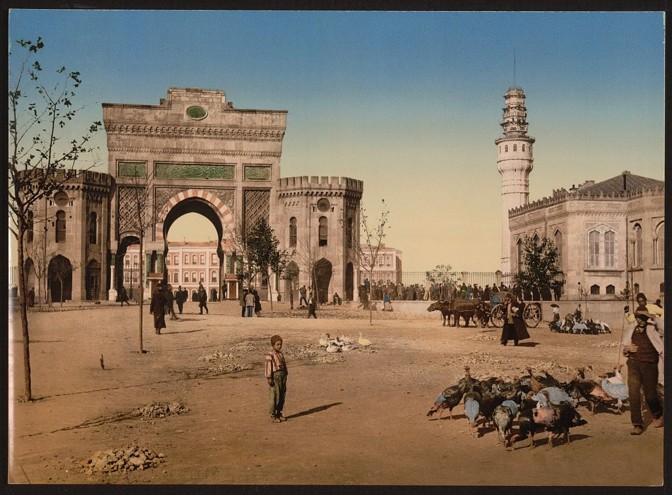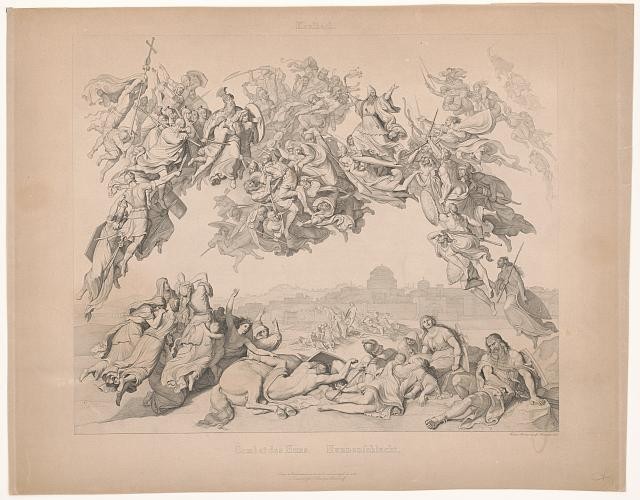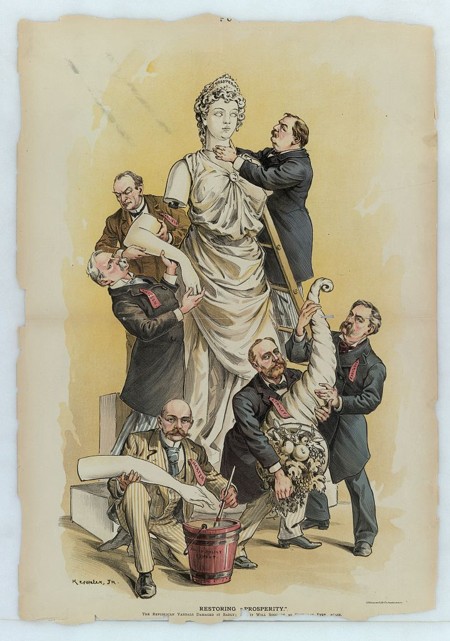Here is one more dip into the waters of ancient Rome. For those joining us late:
- In a “thought experiment” article in the new issue of the print magazine, I ask: What can troubled citizens of today’s America learn from the history of Rome? But the question concerned not the much-publicized lead up to “Decline and Fall.” Rather it was about the “After the Fall” era, known to the scholars at “Late Antiquity.”
- In a first round of responses, academic historians and others pushed back (mainly) against the headline of the article. The headline said, “The Fall of the Roman Empire Wasn’t That Bad.” The academics replied, “Oh yes it was!”
- Next, a governance expert drew parallels between the “Late Antiquity” era and the tension between centralized efforts, and dispersed local innovations, that have been part of the American saga from the very start.
- Then, other readers suggested other ways of making connections, contrasts, and implications.
That brings us to what will probably be the wrap-up—but who knows. Here are several more messages, starting with a long one, about further extracting Rome-and-America comparisons and contrasts:
1) “The empire made the emperors.” In my article, I said that since World War II the United States has run an “empire without the name.” A historically minded reader draws out the implications:
First, it’s entirely appropriate, as you do, to compare the Roman and American empires—even though the US rules its empire as Romans of the republican (not imperial) era did.
In other words, the US empire is an “empire of obedience.” It uses all manner of tools to persuade semi-independent states and other groups to do its bidding, rather than directly governing territories within formal borders. Direct governance and a formalization of borders occurred under the Roman princeps (emperors).
Second, while it’s convenient to date the “fall” of the western Roman empire, it’s not especially useful from an analytic perspective. The western empire had been decentralizing for quite some time, while “barbarians” had been effectively ruling parts of it, directly and indirectly.
It’s critical to note these groups did not conceive of themselves as “invading” or seeking to “overthrow” Roman rule. By and large, they were forced to enter Roman territory by other attackers. Their rulers were also, by and large, Romanized. They largely ruled in cooperation with local Roman elites and using Roman techniques. Odoacer positioned himself as a local Roman ruler formally subservient to the emperor in Constantinople.
What happened in the West was very different from what happened in the East, when the truly “foreign” armies of Islam invaded and conquered territory ….
Third, it’s a bit of a stretch to say decentralization that happened in the 4th and 5th centuries was necessary for developments that came into their own 1,000 years later. There were guild-like groups in 1st century Rome. The Romans appear to have developed fairly sophisticated credit systems and engaged in long-range trade. Monasteries flourished in the eastern empire, which remained quite centralized and even more heavily militarized. And so on.
Could all of this had developed in something like the direction it took if the Roman state had not succumbed, over many years, to internal and external pressures? It’s impossible to say. But I also think it’s impossible to say it wouldn’t have.
In my mind, here’s the most relevant lesson from Rome for current US developments: The emperors didn’t make the empire. The empire made the emperors.
The US has had an emperor for decades, both through the taking of power and, more importantly (and in Roman fashion), through Congress delegating its powers to him. Trump’s willingness to use those powers has revealed what has been the case for some time.

2) “Last Bastion of Democracy.” The message below represents many I’ve received to similar effect, about what America’s fate might mean for China’s influence.
I’ll bet that the majority of people who lived under Roman rule and were not rich by their historic standards would argue that after Rome’s fall most of everything went to the crapper. Although the Romans were brutal at times, those under their rule were largely protected by Rome’s legions at the request of the local governor ….
Suggesting that America’s fall might not be so bad based on Rome’s fall and what occurred afterwards ignores the presence of Russia and China in the world today ………..
imagine a world without one of the last bastions of democracy, the one that feeds innovation and who has fed a large part of the world for decades. A world run by Putin and Xi, yea right, that would be pretty.

3) “Goths were very popular.” A reader who is conducting historical research, and who prefaces his note with an (unnecessary) apology for errors in English he might make as a non-native speaker, writes about why “barbarian” cultures spread so rapidly in Rome’s absence:
I just read Ammianus Marcellinus’ account (among many others) of the accelerated decline of the Empire in the second half of the 4th century and how it lead to its fall a century later.
One fact seldom mentioned about Romanity and Greco-Roman culture is how the people that lived under it seemed to deeply hate it.
A reoccurring fact of the era is how local populations defected to the barbarian tribes massively. People joined the Goths, the Lombards, the Franks and even the Huns in their wars against their own country! Goths were very popular among the population, even when then besieged Rome, we hear about the Roman plebs joining forces with their attackers.
Whole provinces that had been deeply Romanised, even colonized by Romans adopted Barbarian customs so quickly it looks like they were not conquered but liberated. Gaul, Italy, Moesia (in today’s Bulgaria) went over the Barbarians in some cases as fast as a generation. By the 6th century, Italians—Italians!—were proud to call themselves Lombards. …There are many reasons for that; the institution of slavery, the degradation and corruption of civic institutions and services, the turbulent switch from a multireligious Empire to a monotheist and rigidly orthodox quasi-Theocracy.
From reading A. Marcellinus, I was surprised to learn that in fact, Roman civilisation at that point was only working were the emperor was currently residing. As soon as the emperor moved, law, order and good administration collapsed. This is probably why the Emperors in the 4th century were constantly on the move ….

4) Wrapping it up. From a reader in the Midwest:
1) My takeaway from decades-ago reading was that European technology, commerce, wealth surpassed Roman levels around 1100 or so. If that’s right, there was a dark age in concrete senses. The trend among historians I read in graduate school was to push the Renaissance back earlier and earlier, but not to deny that there were losses requiring a renaissance.
Then again, who knows, maybe they were wrong, and/or current revisionism has shrunk the dark age (rightly or questionably) to nothing.
2. If the U.S. federal government continues its descent it will probably take malign forms that will suffocate or actively crush effective local government and other cultural capital. …
5. The question of whether our federal government is on a permanent downward trajectory raises the question of risk/reward in the most radical proposed norm-breaking for a narrow Democratic majority: filibuster end, new state creation [JF note: eg, Puerto Rico, D.C., court packing]. Maybe we’re at the point where risk-taking is the most prudent course—a grab to activate the emerging demographic majority before Republicans manage to suppress democracy altogether.
6. The Pax Romana was also real (or was it?), and the end of Pax Americana may prove very dangerous.
7. Environmental pressure—rising seas, desertification, natural disasters—is probably already driving and will continue driving government dysfunction, while government dysfunction accelerates environmental degradation.
I am not entirely despairing. It’s always hard to tell what ills are cyclical and which ones are one-way streets. No one in the 1980s would have dreamed that crime in the U.S. would go into major remission; maybe mysterious forces will dissipate extreme polarization—and we’ll build new defenses against fake news/brainwashing in free societies. Maybe major technological breakthrough (or an ice age) will save us from global warming.
But it’s hard to get too cheery about compensations for [the end of] a functioning federal government.
Thanks once again to all who have weighed in.